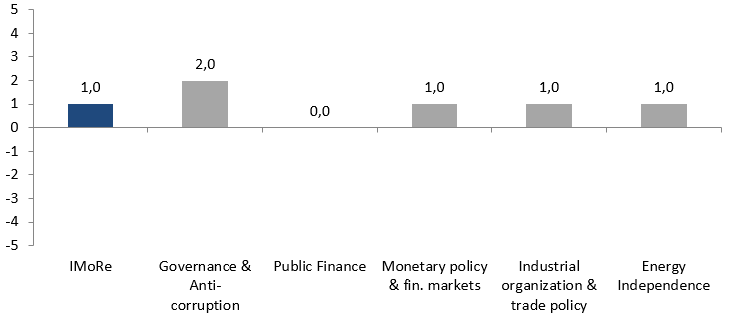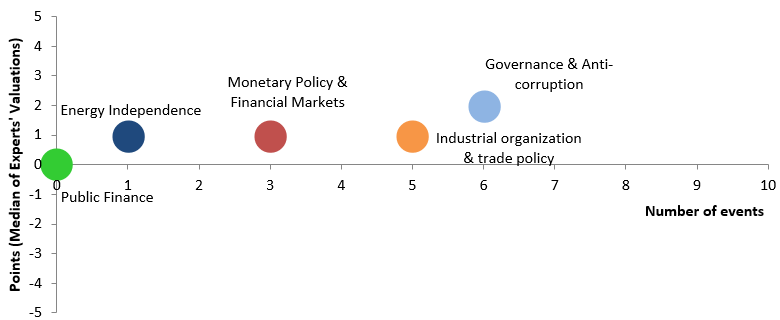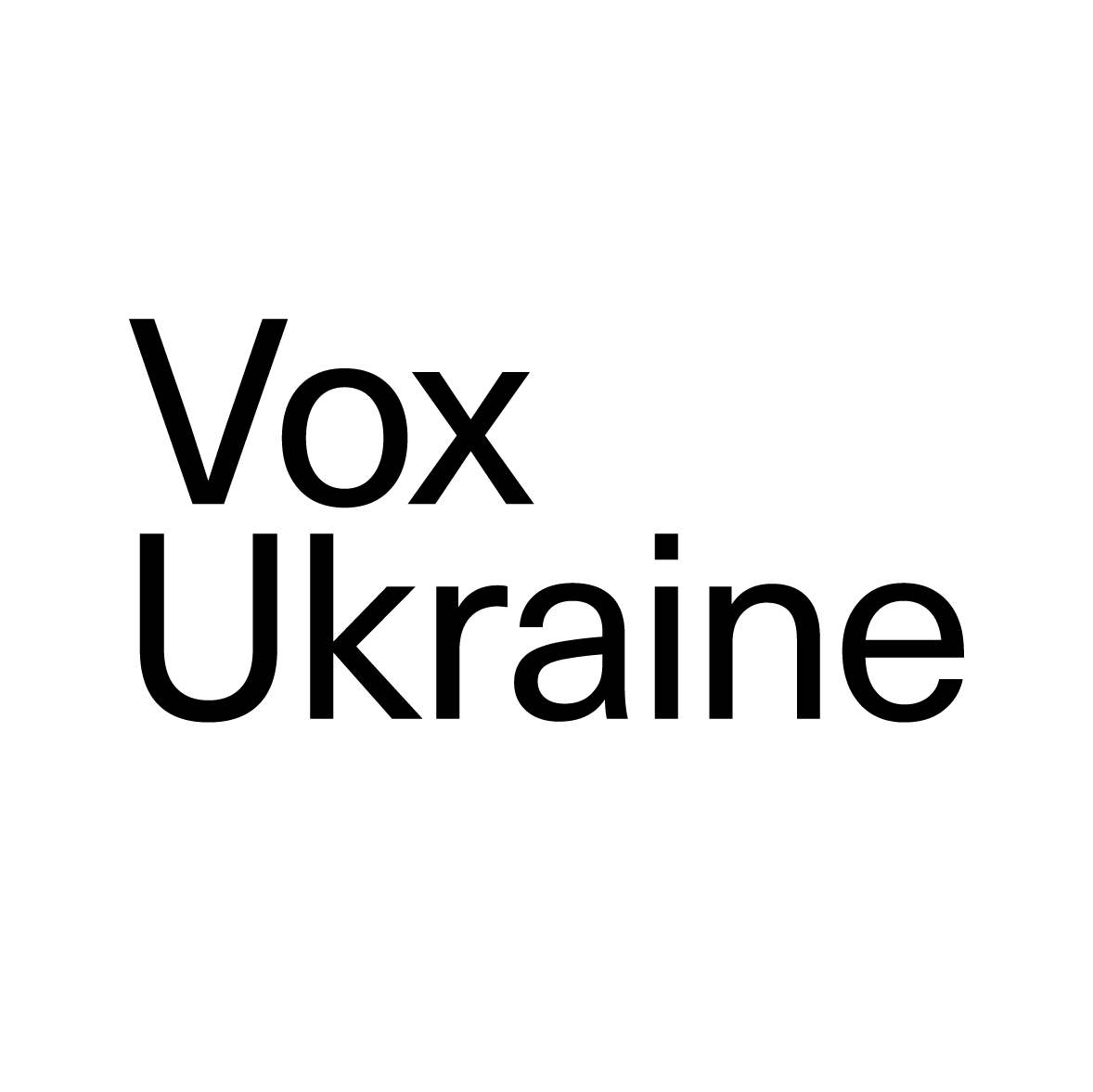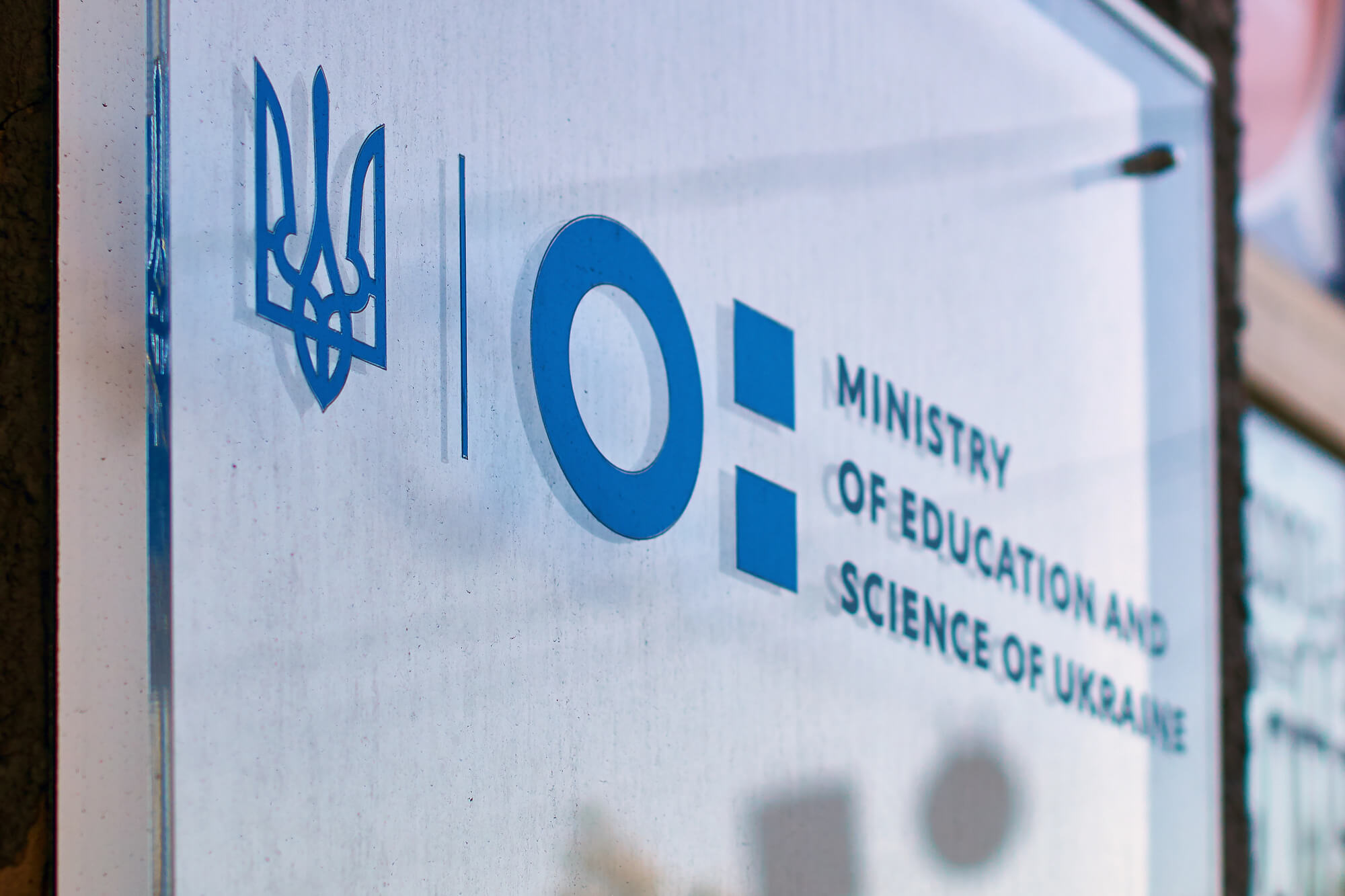Reform Index aims to provide a comprehensive assessment of reform efforts by Ukraine’s authorities. The Index is based on expert assessments of changes in the regulatory environment in five areas. Reform Index value for the 21st monitoring period (October 12 – 25, 2015) was +1.0 point out of the possible range from -5.0 to +5.0 points.
The index is slightly higher compared to the minimum reached in the previous period (+0.4 points), but the pace of reform remains low. Reforms in Governance and Anti-Corruption sector made an exception this period, receiving high grades from the experts.
Chart 1. Reform Index dynamics
Chart 2. Reform Index and its components in the current round
Namely, CMU Decree (835 of 21.10.2015) on the opening of more than three hundred public databases and registries received +5.0 points. Dmytro Kotlyar from Reanimation Package of Reforms Initiative notes that
It is an important Government resolution, which opens the way to a real implementation of changes to the law On Access to Public Information that were adopted in April 2015. The Decree defines the procedure for disclosure of information in the form of open data and includes the minimum list of data sets to be released first. This opens new opportunities for access to socially important information, public control over the government, and encourages the creation of the new data market.
Introduction of competitive selection of school principals scored +3.0 points (in Anticorruption and Competition Policy directions, CMU Decree 827 of 13.10.2015). According to Taras Kachka from Ukraine Reforms Communication Taskforce, this change is
a key element of decentralization, the real strengthening of the role of parents and the community in education.
On the other hand, some experts noted that the implementation of such a decision can be problematic.
Experts provided +2.0 points to cancellation of export licenses for a number of non-ferrous metals products, noting that this is a positive step in deregulation and trade policy (CMU Decree 773 of 30.09.2015).
Allowing the Ministry of Justice divisions provide services on state registration of property rights for real estate (CMU decision 1065-p of 07.10.2015) received +1.0 point, as development strengthens the competition and improves the quality of service. Two NBU regulations received +1.0 point each. The first one eased requirements on the calculation of credit risk and regulatory capital adequacy (NBU Decree 683 of 08.10.2015). The second one somewhat loosened the currency regulations (NBU Decree 718 of 22.10.2015), but this loosening is very minor and has only a limited impact.
Finally, +1.0 point was provided to the decision to return the state-owned gas distribution networks into the use of NJSC “Naftogaz Ukraine” (CMU Decree 796 of 30.09.2015), though experts opinions were divided. On the one hand, return of networks will improve the management of state property because the networks have been in the free-of-charge operational management of regional gas companies. On the other hand, the decision contradicts the earlier plans to split “Naftogaz” into several companies (production, transportation and sales).
Due to the decisions on the opening of a number of state databases and introduction of competitive selection of school principals, overall Governance and Anti-Corruption sector grade was the highest in the twenty-first monitoring period reaching +2.0 points. Three sectors – Monetary policy and financial markets, Industrial Organization and Trade Policy, and Energy Independence – received +1.0 point each. There were no events in the Public Finance sphere – so its grade was 0.0 points.
Reform Index aims to provide a comprehensive assessment of reform efforts by Ukraine’s authorities. The Index is based on expert assessments of changes in the regulatory environment in five areas:
- Governance and Anti-Corruption
- Public Finance and Labor Market
- Monetary Policy and Financial Markets
- Industrial Organization and Foreign Trade
- Energy Independence
For details please visit reforms.voxukraine.org
Chart 3. Value of Reform Index components and number of events October 12 – 25, 2015
Main media partner Project partners

Attention
The authors do not work for, consult to, own shares in or receive funding from any company or organization that would benefit from this article, and have no relevant affiliations






